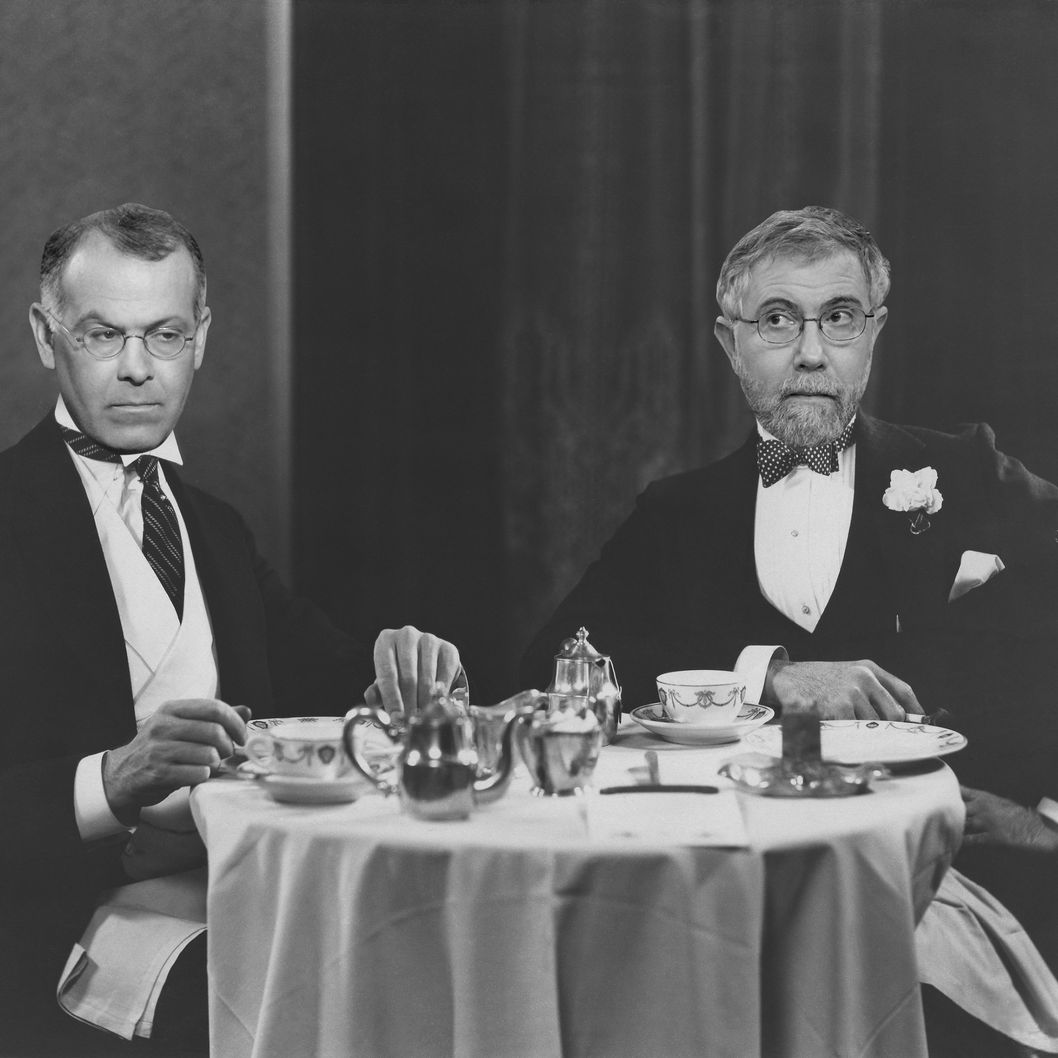 |
| You go to war with the columnist you're with, not the one you wish you were with. |
Okay. Paul Krugman has 1.35M followers on Twitter. David Brooks has 51K. I don't claim to know what that means, other than the obvious fact that Krugman is vastly more popular than Brooks as a writer and pundit.
But there's also that other thing: Krugman speaks to the needs of a wider swath of the American intelligentsia, if the New York Times readership should be called that. Brooks, on the other hand, has narrowed his focus in recent days and months. He's turned quasi-philosophic in tone, speaking more to the moral structure of conservative beliefs rather than the political ramifications of that structure.
In fact, a strange turn of style, if you will, seems to be playing out: Krugman, the longtime Princeton professor, should be the one who appears to deliver his message from the lectern, and it's true that he underpins his points with ample data and graphs. He comes to his topics with more than enough ammunition to carry the day. The comments on his writings show that his burgeoning cadre of readers are buying into what he says.
Brooks, however, is the one who now lectures his readers, explaining over and over again how America's moral standards are under assault, even decline. It's not a pleasant message, and his readers, based on the comments on his columns, let him know in no uncertain terms that they find his work increasingly fatuous, overblown, and wrong-headed.
The Times is considered a more liberal paper than, say, the Washington Post, but that slant doesn't explain the distaste the Times' readership displays toward Brooks' moralizing, which can be summed up easily: The poor and lower classes are moral weaklings who don't deserve free stuff because they won't take responsibility for themselves, especially the blacks, who don't have enough fathers, despite having too many babies. The predicament of the poor is the result of their own moral failings, especially now. In a finer and fairer past, Americaville was a kinder, gentler place with higher moral standards. Here comes the subtext that permeates Brooks' tomes, which is that his tribe, the highly educated, elite whites from the finer sections of town are the upholders of the values of yesteryear and have a rightful claim to the higher moral ground.
Krugman has as much claim to an elitist pose as Brooks. So why is Krugman so much more popular? In this era of income inequality, Krugman -- a man clearly as successful or more so than Brooks -- speaks for the 99% while Brooks speaks for the elite 1%.
I don't see this changing anytime soon. Krugman has his set of beliefs, Brooks has his. There is no confusion here. But Krugman has 1.35M twitter followers, and Brooks has 51K. Somehow I don't think it's because Krugman appeals to the rabble and Brooks to the elite. There's a simple truth here: Krugman's ideas are very popular and Brooks' not so much. I'd be surprised, though, that Brooks' job is in jeopardy. Someone's got to moralize and rail against the corrupt lower classes, and I admit Brooks has found his voice there. Some people must like it. Maybe just about 51K.

No comments:
Post a Comment